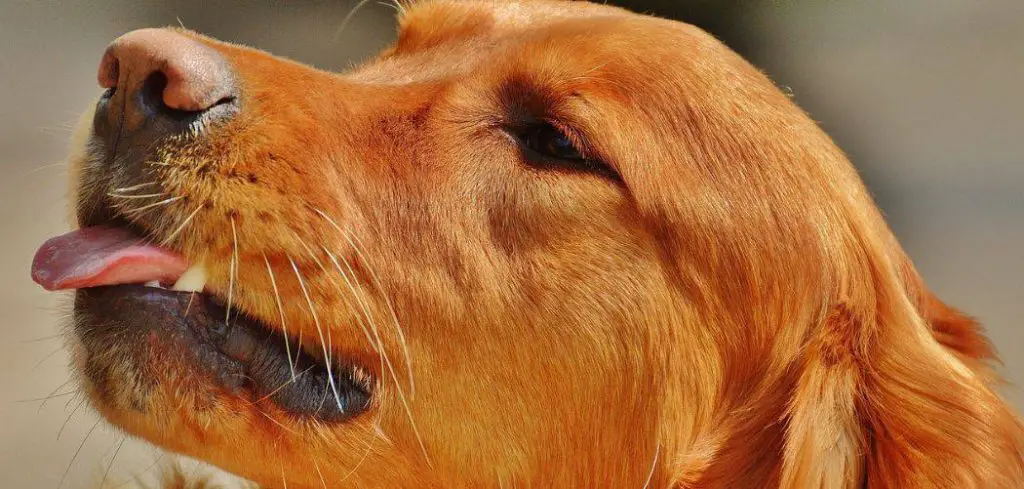If your dog is swallowing food without chewing or showing hesitation when eating, it can be a concerning sign that something is affecting their oral health or appetite.
Proper chewing is important for digestion and overall health, and changes in this behavior often indicate an underlying issue.
We outline the common reasons for a dog not chewing food, what you can do at home, and when to seek veterinary help.
Dog Not Chewing Food: Why It Happens
A dog not chewing food often happens when they gulp or swallow their meals too quickly, which is common in dogs that are highly food-motivated, anxious during mealtimes, or competing with other pets. Some dogs simply prefer soft or small kibble and naturally chew less.
However, it can also indicate dental problems such as tooth pain, gum disease, broken teeth, or oral discomfort that makes chewing unpleasant.
In rare cases, difficulty chewing may be linked to jaw pain, neurological issues, or a foreign object in the mouth.
If your dog suddenly stops chewing, seems uncomfortable when eating, drops food, or shows signs of pain, a veterinary exam is recommended to rule out dental or medical issues.

Dog Not Chewing Food: Common Causes
Dental Disease
Dental issues are one of the most common reasons a dog stops chewing food. Pain from broken teeth, infected gums, or tartar buildup can make chewing uncomfortable, so dogs may swallow their food whole to avoid discomfort.
You may notice bad breath, drooling, pawing at the mouth, or reluctance to eat hard food.
Dental disease is serious because untreated oral pain can lead to infections that affect the heart, kidneys, and other organs over time.
Read more: Dog Only Drinking Water and Not Eating (Here’s why)
Oral Injuries
Injuries to the mouth, tongue, or jaw, such as cuts, burns, or trauma from chewing on hard objects, can cause dogs to avoid chewing. Even minor injuries may be painful enough for a dog to swallow food whole instead of chewing.
Signs include bleeding, swelling, sensitivity when the mouth is touched, or sudden changes in eating behavior. Oral injuries should be assessed promptly to prevent infection and promote healing.
Arthritis or Jaw Problems
Arthritis in the jaw joint or other musculoskeletal issues can make chewing difficult or painful. Dogs with these conditions may avoid chewing as it puts pressure on sore joints.
Other signs can include stiffness, difficulty opening the mouth, drooling, or reluctance to play with chew toys. Jaw problems can worsen over time, making early veterinary evaluation important to manage pain and maintain nutrition.
Gastrointestinal Discomfort
Some dogs avoid chewing due to nausea, stomach pain, or other digestive issues. Swallowing food quickly may feel easier if chewing triggers discomfort in the stomach or esophagus.
You may notice vomiting, diarrhea, loss of appetite, or unusual behaviors such as restlessness or pacing.
Gastrointestinal discomfort should be addressed promptly to prevent further complications and ensure proper nutrition.
Neurological or Cognitive Issues
Neurological disorders, including nerve damage or cognitive decline, can interfere with a dog’s ability to chew.
Dogs may forget how to chew properly, have difficulty coordinating jaw movements, or lose interest in chewing altogether.
Signs include confusion, drooling, pawing at the mouth, or difficulty manipulating food. Early detection and veterinary guidance can help manage symptoms and maintain the dog’s quality of life.
Behavioral Factors
Some dogs develop habits of swallowing food whole, especially if they were raised in environments where competition for food existed or if they have anxiety around mealtime. Behavioral causes can be less obvious but are still important to address.
Signs may include rapid eating, gulping, or reluctance to chew dry kibble. Behavioral interventions and training can help encourage safe chewing habits while reducing stress during mealtime.
Read more: Dog suddenly not eating and vomiting (Why it happens)
What to Do If Your Dog Is Not Chewing Food
Observe your dog closely during meals to identify any pain or difficulty in chewing. Check for signs of dental issues, oral injuries, or unusual behavior.
Switching to softer foods, moistening dry kibble, or offering smaller pieces can make eating more comfortable.
Encourage chewing with safe toys or treats, and provide a calm, stress-free environment during mealtime to reduce anxiety-related swallowing.
Maintain a regular dental hygiene routine, including brushing if possible and offering dental chews approved by veterinarians.
Regular veterinary check-ups can detect and address underlying dental, gastrointestinal, or neurological issues before they worsen.
When to Call or Visit Your Vet
Immediate veterinary attention is needed if your dog shows persistent reluctance to chew, weight loss, drooling, bleeding from the mouth, or difficulty swallowing.
Sudden changes in eating behavior combined with vomiting, diarrhea, or lethargy may indicate a more serious medical condition.
Your veterinarian may perform oral examinations, dental X-rays, neurological assessments, or blood work to identify the underlying cause and recommend treatment.
Early intervention can prevent pain, infection, and further health complications, ensuring your dog maintains proper nutrition and comfort during meals.
Related: Old dog not eating (Here’s why)
Key Takeaway
A dog not chewing food can result from dental disease, oral injuries, jaw or arthritis problems, gastrointestinal discomfort, neurological issues, or behavioral habits.
While some causes can be managed at home with dietary adjustments and training, many require veterinary evaluation for proper treatment.
Monitoring your dog’s eating habits, providing supportive care, and seeking veterinary guidance early are essential steps to ensure your dog remains healthy, pain-free, and able to enjoy meals safely.
Addressing the root cause promptly can improve both your dog’s comfort and overall wellbeing.
